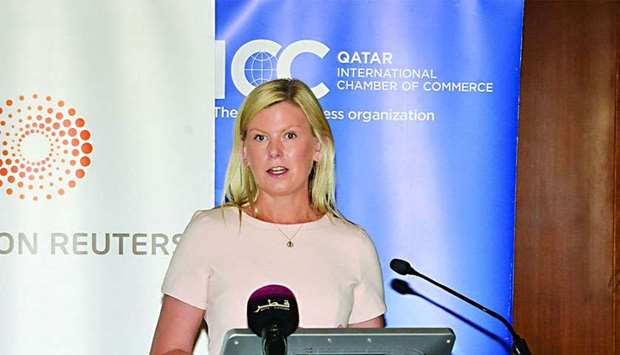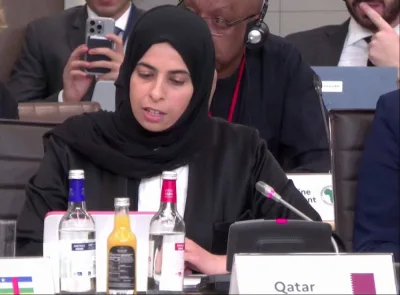Six months is enough for Qatari companies to prepare for the implementation of value added tax (VAT) in the country, an expert said during a seminar held at the Qatar Chamber on Monday.
Francois Malan, senior manager – Indirect Tax at Ernst & Young, cautioned, however, that companies in some countries in the region where VAT was applied “without preparations” experienced “confusion and interruption.”
Malan, who was speaking at the seminar titled ‘The Impact of VAT Compliance on Energy Sector in Qatar’, said only 10% of the institutions and companies in some countries in the region “were fully prepared to implement the new law.”
The remaining 90%, he continued, were not able to enforce VAT successfully despite outsourcing help and adopting solutions and delayed measures in preparation for VAT implementation.
According to Ernst & Young Qatar Partner and VAT implementation leader Jennifer O’ Sullivan, Qatar’s legislative framework “is ready for the VAT implementation.”
O’ Sullivan said she expects that all GCC countries will apply the tax by 2019, and assured that “all companies shall be ready before the tax enters into force.”
She said there are three treatments for VAT compliance, including 5%, 0%, and exempt, noting that any country in the process of implementing VAT “shall be ready 12 months before.”
Finbarr Sexton, partner and Mena indirect tax leader at Ernst & Young Qatar, said VAT “is not a financial matter, but a constitutional process that is related to all businesses.”
He emphasised that all contracts should be reviewed to include VAT compliance to avoid any challenges in the future.
Pierre Arman, Market Development Lead for the Tax & Accounting Division at Thomson Reuters Mena, said companies are required to apply VAT according to the country’s executive regulations, especially on preparing the tax data for regulating bodies.
Arman said he expects that oil and gas companies will unify their enterprise resources planning system (EPR).
Mehrdad Talaifar, associate partner, Tax Technology and Transformation at Ernst & Young, highlighted the impact of VAT on large and medium institutions and ways of preparing IT and financial departments to deal with VAT.
Talaifar noted that the tax compliance in many GCC countries raised many issues, which should be considered before implementing the tax in Qatar “to avoid any challenges in the future.”
He said the general frame of VAT in all countries is similar, noting that one of the most common difficulty faced by companies is failure to prepare for the proper implementation of VAT and the delay in preparing accounting and IT systems.
The seminar was organised by the International Chamber of Commerce-Qatar, in collaboration with Thomson Reuters and Ernst and Young, and supported by Qatar Chamber.



